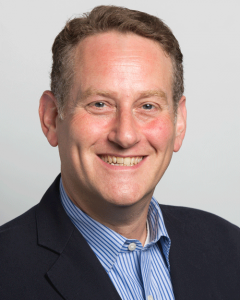
Thank you for the interest in Human Factors Engineering at Tufts University!
On behalf of all our faculty I would like to tell you a little bit about our program. Tufts University is home to the country’s oldest undergraduate program in Human Factors. With deep roots in the history of human-factors engineering, Tufts has been home to cutting-edge human factors research for over 75 years and we have been educating leaders in the field for over 50 years.
Like the field itself, our program is interdisciplinary – involving labs and professors from a range of departments including mechanical engineering, psychology, biomedical engineering, computer science, computer engineering, occupational therapy, education, nutrition, civic engagement, and the school of the museum of fine arts (SMFA).
Our vision is: We apply “Human Factors Engineering (HFE) thinking” (approaches, methods, and tools) to the design, testing, and refinement of systems. These systems might be mechanical systems (e.g. soft robotics), digital systems (e.g. apps, websites, or user-interfaces), human-machine systems (e.g. surgical robots or drones), human systems (e.g. entrepreneurship or marketing campaigns), social systems (e.g. social-norming campaigns or educational approaches), or even processes (e.g. handwashing procedures or patient check-in). We believe that “HFE thinking” is not limited to any one domain or any one class of problems. If you are an entrepreneur trying to identify a new business opportunity, or a graphic designer trying to craft a new logo you might well use many of the same HFE techniques used by a designer trying to craft a drone-controller or a nuclear power plant control panel. Approaches like design-thinking, human centered design, usability testing, parametric examinations, statistical analyses, and the iterative-approach are just some of the tools in the HFE-thinking toolbox.
In addition to our full-time faculty, we have passionate professors teaching specialized classes from a wide range of leading companies including: Emergo (Michael Wiklund), MITLL (Dan Hannon), Fresenius (Sami Durrani), SolidWorks (David Aurelio), Endurance (Linda Borghesani), Charles River Analytics (Tim McEwen), the Volpe Center (Mary Stearns/JK Pollard), Continuum (Eric Bogner), Intrepid (Christina Pizzo/Jon Tillis).
We offer a wide range of our educational possibilities. At the undergraduate level, students in the School of Engineering can major (or minor) in “Human Factors Engineering”, while students in the School of Arts and Sciences can major in “Engineering Psychology.” These programs are quite similar – differing primarily in terms of the general School-level requirements.
At the graduate level we offer masters degrees (either “with thesis” or “non-thesis”). We also offer several graduate certificates: one in “human computer interaction”, another in “medical devices and systems”, and we are developing a third in “consumer psychology.” Most of our graduate level offerings (4-course certificates as well as 10-course masters degrees) have been crafted with the working professional in mind.
Almost all of our courses are available in the evenings – and many core classes are also available via the internet (via telepresence).
It is an exciting time at Tufts. We have active research in a wide range of areas including VR/AR/MR (we have a half-dozen full VR systems), driving (we have a full driving simulator), usability (we have a full usability lab), medical devices (our usability lab has a hospital bed and doctor’s office), complex graphical user-interfaces (we have data gloves and other toys), robotics, soft-robotics, social robotics, educational-technologies, assistive technologies, IOT-systems, and the list goes on and on.
In addition to our active and dynamic research and development activities, we also have a range of other things happening including a speaker series, student-led events, and growing relationships with a range of companies including: Johnson and Johnson, Takeda, Fidelity, and Bose.
Things are hopping at Tufts! If you want to find out more please get in touch and/or come visit!
Sincerely,
James Intriligator, PhD, FRSA
Professor of the Practice, Human Factors Engineering
Department of Mechanical Engineering
School of Engineering
